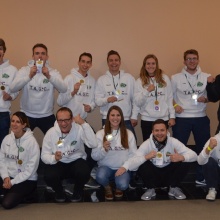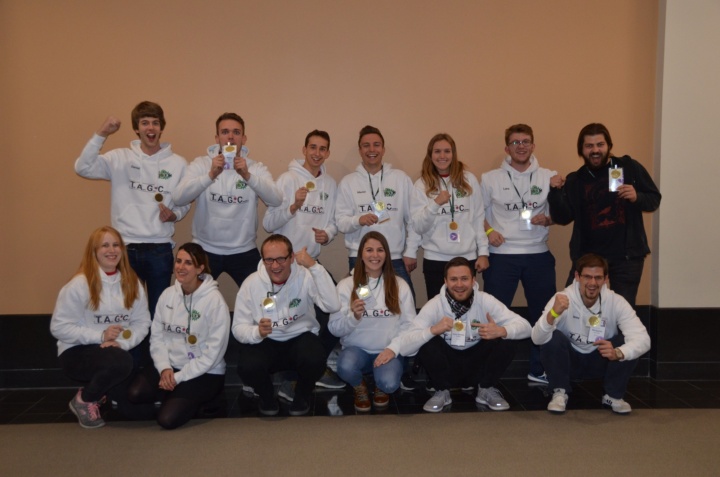Gold in Boston for the team from the University of Stuttgart: The team impressed at the prestigious iGEM (international Genetically Engineered Machines) Competition with its new antibacterial surface coating called TAGC (The Anti-Germ Coating). These coatings could be used in public buildings for example, such as hospitals, administration departments and also on public transport. This could help prevent the spread of germs which may cause disease.
The University of Stuttgart took part in the competition for the second time. The entry was coordinated by Prof. Martin Siemann-Herzberg from the Institute for Biochemical Engineering. “iGEM is an ideal learning forum, and it’s spread to the universities like wildfire over the past 20 years”, he reports. Preparations for the 2019 competition start up again in November.
In 2018, more than 350 teams from leading schools and universities from around the world took part in the competition, which takes place in Boston every fall. Student projects from the field of synthetic biology are awarded prizes in various different categories. Synthetic biology is considered a key technology for the future. It combines biology with engineering, for example to modify organisms.
iGEM is the biggest and most-renowned competition for synthetic biology in the world. It has been organized by the Massachusetts Institute of Technology (MIT) in Cambridge, USA since 2004. The young scientists develop their own project independently over the space of about seven months. Their research findings must be submitted in writing. Then in the fall, the teams present their project and their findings in person in Boston.
Expert Contact:
Prof. Martin Siemann-Herzberg, Institute for Biochemical Engineering, e-mail, phone +49 711 685 65261



